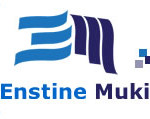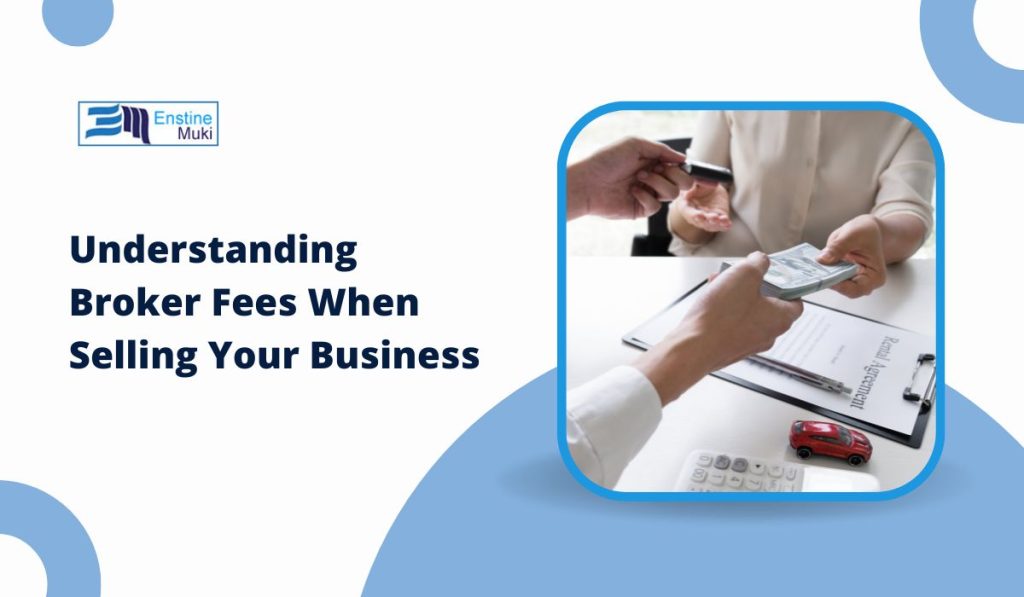Selling a business can be a complex process, and business brokers play a crucial role in ensuring a successful sale. However, understanding how much brokers charge is essential for planning your costs and maximizing your sale value. In this guide, we’ll explore the fees brokers charge, how they are structured, factors influencing their rates, and ways to minimize costs.
What Are Broker Fees for Selling a Business?
Business brokers typically charge fees for facilitating the sale of a business. These fees vary depending on the size and complexity of the transaction. The most common fee structure is a success fee, which is a percentage of the final sale price, usually ranging from 10% to 15% for smaller businesses.
Some brokers also charge flat fees or retainers for specific services like marketing or initial consultations. These fees are typically deducted from the success fee upon the completion of the sale.
Types of Fees Charged by Brokers
Brokers may charge a combination of different fees depending on the services they provide. Here are the main types:
Retainer Fees
A retainer fee is an upfront payment made to the broker for initiating the sale process. This fee covers administrative costs, initial marketing efforts, and any upfront advisory services. Retainer fees typically range from $2,000 to $10,000, depending on the broker and business size.
Success Fees
The success fee, or commission, is the largest component of broker charges. It is paid only when the business is successfully sold. For smaller businesses, this fee is often 10%-15% of the sale price. For larger businesses, the percentage decreases but the overall fee amount increases due to the higher transaction value.
Marketing Fees
Some brokers charge separate fees for marketing your business, including advertising, listing on platforms, and creating promotional materials. These fees usually range from $500 to $5,000, depending on the marketing strategy.
Due Diligence Costs
In some cases, brokers charge additional fees for handling legal, financial, or operational due diligence tasks. This is more common in complex or high-value transactions.
Factors That Influence Broker Fees
Broker fees are influenced by several factors, including:
- The size of your business plays a significant role in determining broker fees. Smaller businesses often incur higher percentage fees, while larger businesses benefit from lower percentage rates but higher absolute fees.
- Businesses in specialized industries, such as technology or healthcare, may require brokers with niche expertise, leading to higher fees.
- The complexity of the transaction affects the broker’s workload. For example, businesses with complicated ownership structures or regulatory requirements may incur higher fees.
- Broker fees can vary by region due to differences in market demand, competition, and cost of living. High-demand areas may see slightly higher fees.
Average Broker Fees by Business Type
Here’s a breakdown of typical broker fees based on business size:
- Small Businesses (<$1M in value):
Brokers usually charge 10%-15% of the sale price.
Example: A business sold for $500,000 would incur fees of $50,000-$75,000. - Mid-Sized Businesses ($1M-$10M in value):
The fee percentage decreases slightly, ranging from 6%-10%, as the transaction value increases.
Example: A $5M business might have fees between $300,000 and $500,000. - Large Businesses (>$10M in value):
For high-value transactions, brokers typically charge 2%-6% of the sale price.
Example: A $20M business could incur fees between $400,000 and $1.2M.
Hidden Costs to Consider When Hiring a Business Broker
When hiring a broker, be aware of potential hidden costs, such as:
1. Additional Marketing Costs
Most brokers include basic marketing efforts in their fees, such as listing your business on their website or publicizing it within their network. However, many brokers charge extra for enhanced marketing strategies designed to attract a wider pool of potential buyers.
These additional marketing costs may include:
- Online Advertising: Paid promotions on platforms like Google Ads, social media, or business marketplaces to increase visibility.
- Professional Photography or Videography: High-quality images or video tours of your business premises to make listings more appealing to buyers.
- Premium Listings: Featuring your business in a more prominent position on popular marketplaces such as BizBuySell or LoopNet, which often comes with higher charges.
These marketing costs can range from $500 to $5,000 or more, depending on the extent of the marketing campaign and the services offered. Always clarify what is included in the broker’s standard fee and what will incur additional charges.
2. Legal and Accounting Fees
Although brokers manage the sales process, they typically don’t cover legal or financial documentation, leaving you responsible for hiring separate professionals. These costs can add up quickly, especially in complex transactions involving contracts, due diligence, and tax planning.
Common expenses include:
- Legal Fees: Drafting or reviewing contracts, non-disclosure agreements (NDAs), and final sales agreements by a business attorney.
- Accounting Fees: Preparing financial statements, conducting due diligence, and ensuring tax compliance with the help of an accountant or CPA.
- Escrow Fees: If an escrow service is used to hold funds during the transaction, you may be charged additional administrative costs.
On average, legal and accounting fees can range from $2,000 to $15,000, depending on the size and complexity of the deal. Ensure these costs are accounted for in your overall budget and discuss the broker’s role in coordinating with these professionals.
3. Termination Fees
Termination fees are charges you may owe the broker if you decide to withdraw your business from the market before completing a sale. These fees compensate the broker for the time and effort they have already invested in preparing and marketing your business.
Termination fees may apply in the following cases:
- Early Exit: If you change your mind about selling your business after signing a brokerage agreement.
- Failure to Attract Buyers: If your business fails to garner interest due to pricing, market conditions, or other factors.
- Switching Brokers: If you terminate your contract to work with a different broker.
These fees can vary significantly based on the terms of your agreement. Some brokers may require you to pay a portion of the retainer fee or reimburse marketing costs incurred up to that point. Termination fees typically range from $1,000 to $5,000 or higher, depending on the broker and the specifics of the contract.
How to Minimize Hidden Costs
To avoid surprises, take the following steps:
- Ensure the broker provides a clear outline of all potential costs, including marketing and termination fees, before signing a contract.
- Ask whether premium marketing services can be included in the standard commission or at a discounted rate.
- Get quotes from attorneys and accountants ahead of time to estimate additional expenses accurately.
- Look for clauses related to termination fees and hidden charges, and don’t hesitate to ask for revisions if needed.
By understanding these potential hidden costs and planning accordingly, you can make more informed decisions and keep the overall cost of selling your business under control.
Comparing Flat Fees vs Commission-Based Fees
Brokers may charge either a flat fee or a commission-based success fee. Each has its pros and cons:
- Flat Fees:
Ideal for smaller businesses with predictable sale processes.
Advantage: You know the cost upfront, regardless of the sale price.
Disadvantage: No incentive for the broker to maximize the sale price. - Commission-Based Fees:
Common for mid-sized and large businesses.
Advantage: Aligns broker incentives with your goal of maximizing the sale price.
Disadvantage: Higher fees for high-value transactions.
Negotiating Broker Fees
It’s often possible to negotiate broker fees, especially for larger businesses or simpler transactions. Here are some tips:
- Request Discounts: Ask for a reduced commission rate, especially if your business is high-value.
- Bundle Services: Negotiate for inclusive packages that cover marketing, due diligence, and advisory.
- Compare Quotes: Approach multiple brokers to create competitive leverage during negotiations.
How to Choose the Right Business Broker
When selecting a broker, consider the following:
- Experience: Look for brokers with a proven track record in your industry.
- Transparency: Ensure the fee structure is clear, with no hidden costs.
- Reputation: Read reviews and testimonials from previous clients.
- Certifications: Brokers with credentials like Certified Business Intermediary (CBI) are often more reliable.
Real-Life Examples of Broker Fees
Here are a few examples of broker fees based on actual transactions:
- A small café sold for $250,000 incurred a 12% success fee, totaling $30,000.
- A mid-sized IT consulting firm sold for $3M with a 7% fee, amounting to $210,000.
- A manufacturing company sold for $15M with a 5% fee, resulting in $750,000 in broker charges.
FAQs About Broker Fees
What is the typical percentage brokers charge to sell a business?
Most brokers charge 10%-15% for small businesses, with lower percentages for larger businesses.
Are broker fees negotiable?
Yes, especially for high-value businesses or simpler transactions.
What’s included in the broker’s commission?
It typically covers marketing, negotiations, and deal closure assistance.
Do brokers charge if the business doesn’t sell?
You may still owe retainer or marketing fees if no sale occurs.
Business brokers provide valuable expertise, but their fees can vary widely based on the size, complexity, and type of business being sold. By understanding fee structures, negotiating terms, and exploring alternatives, you can minimize costs and ensure a successful sale. Carefully evaluate brokers to find the right fit for your needs, and plan your budget to account for all associated costs.

